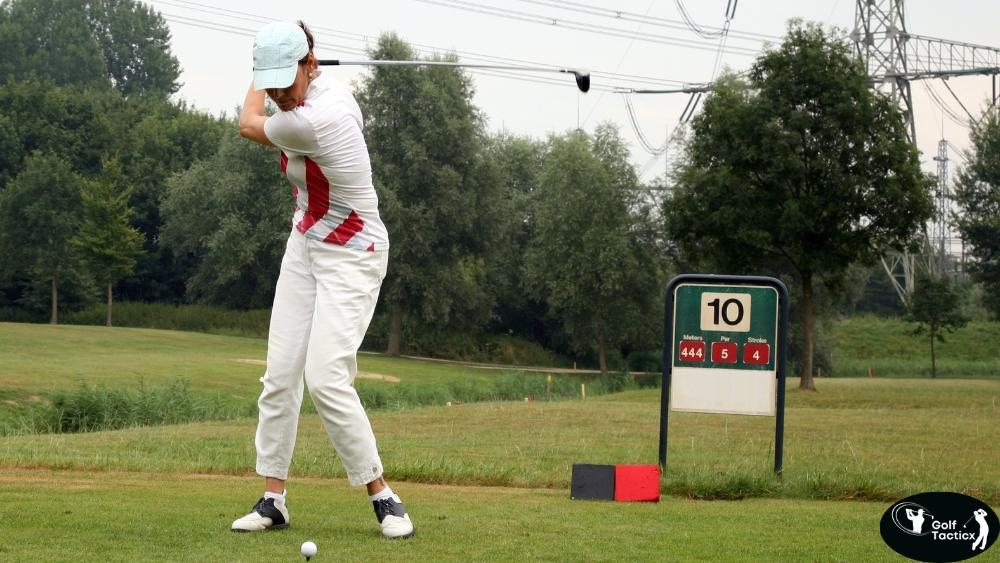If you’re looking to strengthen your mental resilience, you’re in the right place. In our previous post, we discussed Approaching Risk-Reward Shots in Tournament Golf. Mental resilience is your ability to bounce back from challenges, stay calm under pressure, and keep moving forward despite setbacks. Let’s explore how you can build this vital skill.
In golf, mental toughness often separates good players from great ones. The ability to maintain focus through long rounds, recover after a poor hole, and adapt to changing course conditions is key to consistent performance.
Building Unshakable Mental Resilience in Golf also means developing patience, managing frustration, and trusting your skills even when the scoreboard isn’t in your favor.
Whether you’re competing in tournaments or enjoying a weekend round, Building Unshakable Mental Resilience in Golf will help you handle pressure, embrace challenges, and turn obstacles into opportunities for growth.
Understanding Mental Resilience
Mental resilience involves adapting well to adversity, trauma, tragedy, threats, or significant sources of stress. It’s about maintaining a positive attitude and staying focused, even when life gets tough.
In golf, this means being able to shake off a poor shot or a bad hole without letting it affect the rest of your round. It’s the skill of keeping your mind clear when facing a difficult lie, unpredictable wind, or the pressure of a playoff.
Resilient golfers view challenges as part of the game, using them as opportunities to refine strategy and strengthen mental toughness.
They understand that success comes not from avoiding mistakes entirely but from recovering quickly and making smart choices afterward. By training your mind to handle these moments, you set yourself up to perform consistently under all conditions.
Why Is Mental Resilience Important?
Having strong mental resilience helps you manage stress, overcome obstacles, and maintain your well-being. It enables you to:
Adapt to Change: Embrace new situations and challenges. In golf, this could mean adjusting your strategy mid-round when weather conditions shift or when the course plays differently than expected.
Maintain Focus: Stay on track with your goals, even during tough times. On the course, it’s about keeping your concentration through long rounds, ignoring distractions, and committing to each shot.
Recover from Setbacks: Bounce back quickly after difficulties. A double bogey, missed putt, or errant drive doesn’t have to ruin your scorecard if you reset mentally and move forward with confidence.
Manage Stress: Handle pressure without feeling overwhelmed. Whether it’s the final hole of a championship or a casual match with friends, staying composed ensures your swing and decision-making remain steady under pressure.
Steps to Build Mental Resilience
Develop a Positive Mindset
Start by focusing on the positive aspects of your life. Gratitude can shift your perspective and improve your mood. Try keeping a gratitude journal, noting things you’re thankful for each day.
Set Realistic Goals
Break your larger goals into smaller, manageable tasks. Achieving these smaller goals can boost your confidence and motivation.
Build Strong Relationships
Surround yourself with supportive friends and family. Having a strong support system can help you navigate challenges more effectively.
Practice Self-Care
Take care of your physical health by eating well, exercising, and getting enough sleep. Physical well-being is closely linked to mental resilience.
Learn to Manage Stress
Incorporate stress-reduction techniques into your daily routine, such as deep breathing exercises, meditation, or yoga.
Embrace Change
Be open to new experiences and adapt to changes in your environment. Flexibility can help you cope with unexpected situations.
Maintain a Sense of Purpose
Engage in activities that give you a sense of purpose and fulfillment, whether it’s work, hobbies, or volunteering.
Practical Exercises to Enhance Resilience
Here are some exercises to help you build mental resilience:
Gratitude Journaling
Each day, write down three things you’re grateful for. This practice can shift your focus to the positive aspects of your life.
Goal Setting
Break your larger goals into smaller, achievable tasks. Completing these tasks can boost your confidence and motivation.
Building Support Networks
Make an effort to connect with friends and family regularly. Strong relationships provide emotional support during tough times.
Stress-Reduction Techniques
Incorporate practices like deep breathing, meditation, or yoga into your daily routine to manage stress effectively.
Embracing Change
Challenge yourself to try new things and adapt to changes in your environment. This flexibility can enhance your resilience.
Visualization for Pre-Shot Confidence
Visualization is a powerful mental tool in Building Unshakable Mental Resilience in Golf. Before each shot, picture the ball’s trajectory, landing spot, and roll toward the target. By mentally rehearsing the perfect outcome, you train your brain to commit fully to the shot, reducing doubt and hesitation.
This technique not only boosts confidence but also aligns your body and mind for better execution under pressure.
Mental Resilience Drills for Golfers
Incorporate these drills into your practice to support Building Unshakable Mental Resilience in Golf:
- One-Ball Practice Rounds – Play a practice round using just one ball, treating every shot as if it’s in competition.
- Pressure Putting Games – Create high-stakes scenarios for short putts to simulate tournament tension.
- Recovery Shot Challenges – Practice getting out of tough lies or hazards to improve problem-solving under stress.
Tracking Mental Performance Over Time
| Round Date | Emotional State at Start | Biggest Mental Challenge | Recovery Strategy Used | Outcome on Performance |
|---|---|---|---|---|
| 06/12/2025 | Calm & Confident | Windy Conditions | Adjusted Club Choice | Maintained Par Pace |
| 06/19/2025 | Nervous | Missed Early Putt | Deep Breathing | Improved Back Nine |
| 06/25/2025 | Focused | Slow Playing Group | Visualization | Stayed Consistent |
Tracking your mental state alongside performance is essential for Building Unshakable Mental Resilience in Golf. Over time, you’ll identify patterns, learn what strategies work best, and strengthen your ability to handle pressure consistently.
Conclusion
Building unshakable mental resilience is a journey that requires time, effort, and patience. By adopting a positive mindset, setting realistic goals, nurturing relationships, practicing self-care, managing stress, embracing change, and maintaining a sense of purpose, you can strengthen your ability to cope with life’s challenges. Remember, resilience is not about avoiding difficulties but about developing the strength to overcome them.
In golf, this strength is tested on every round—whether it’s bouncing back from a double bogey, staying calm after a missed putt, or keeping composure in sudden-death playoffs.
Mental resilience allows you to trust your swing, stick to your strategy, and avoid letting one bad shot snowball into a poor round. By staying disciplined and present, you’ll not only improve your score but also enjoy the game more.
In our next post, we’ll explore Staying Fully Engaged and Focused Throughout a Four-Day Tournament, offering strategies to help you stay sharp and mentally strong during prolonged competition.
















Leave a Reply